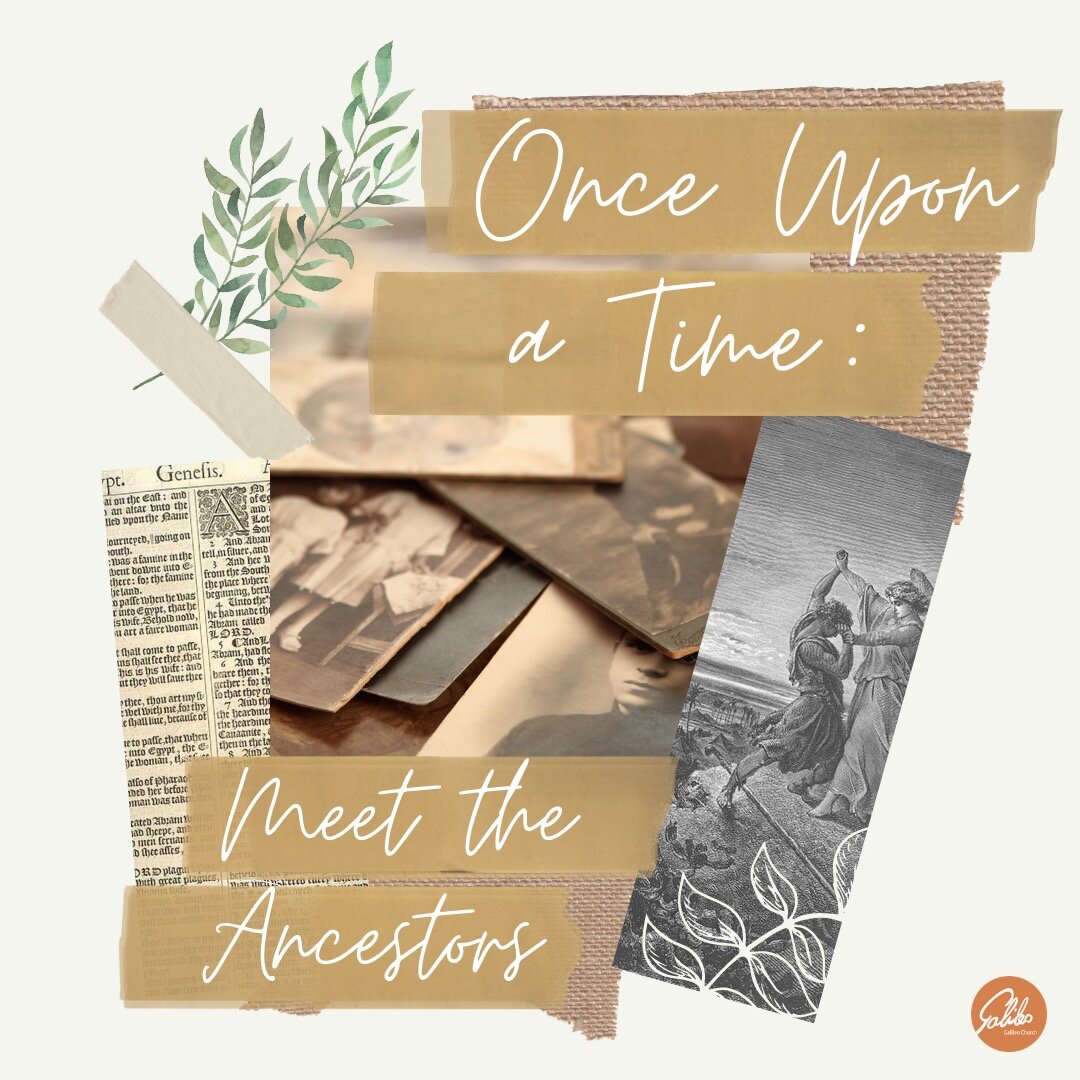Once upon a time: meet the ancestors
Who came first, Abraham or Moses? Was ancient Israel a conqueror, or conqueree? Is it necessary for God’s people to have land of their own, or can they be God’s people without an address? What difference does it make?
Our faith is built on the foundation of Very Old encounters between God and specific humans, an ancestral history that helps us make sense of the somewhat disconnected scriptures we read from week to week. And these stories communicate the theology that Jesus inherited, a heritage of understanding God’s ways with God’s people. To understand him, we best understand them.
God chose Abraham, and promised him the world. God’s relationship with Abraham (and Sarah and Hagar) begins a new era for God with God’s world – the narrowing of focus from “all creation” to just one family and its descendants. Maybe God and this family will find a way to be in harmony, a.k.a. covenant? Thereafter, Abraham becomes a meme of faithfulness beyond (before) religiosity. What God looks for in a person is trust, even when God’s promise-keeping is slow and subtle.
God wrestled Jacob, and gave him strong (enslaved) descendants. Jacob is scrappy, devious, and chosen by God to carry on the covenant with Abraham. The bloodline finally expands with his 12 sons (and unnumbered daughters); but by now God has competition for sovereignty, and Egypt’s Pharaoh claims God’s people (now “Israel”) as his own. Where does God go? Why does God wait?
God heard, remembered, looked, took notice – and liberated Israel. The groaning Israelites catch God’s ear, and God launches Operation Deca-Plague with Moses, Aaron, and Miriam as God’s agitators. The family-specific covenant now expands to the new nation they are becoming – if only they had somewhere to settle.
God fulfilled the promise of land (and the people built an empire). It’s problematic to us that Israel’s armies have to obliterate other people to settle in their “promised land.” But more problematic, biblically speaking, is their wannabe empire status. The more settled they become, the more they want to play the militaristic, consumeristic, power-tripping game their neighbors play. King David’s family is an allegory for the whole nation – his house is in disorder, even as he’s “winning” the day.
God opened God’s hand to relinquish (or smack?). The Bible has an argument with itself here: as one empire after another takes bites out of Israel’s land and people, are we to understand that God has engineered their destruction? or that this is the grain of the universe, and those who go against the grain bear the consequences? In other words, does God punish the Israelites, or simply release them to their fate? The biblical prophets report variously on the primary cause of Israel’s exile. But they are agreed that God “waits to show mercy…”
God remains and God restores (and still we wait). The restoration of Jerusalem and its temple after exile is something short of the city’s former glory. A remnant returns from exile and what they are able to effect shows their diminished status on the world stage. This “second temple” in Jerusalem under Roman occupation is the “Israel” Jesus knew; the people were hungrier than ever for a messiah to usher in God’s reign and overturn centuries of suffering.


